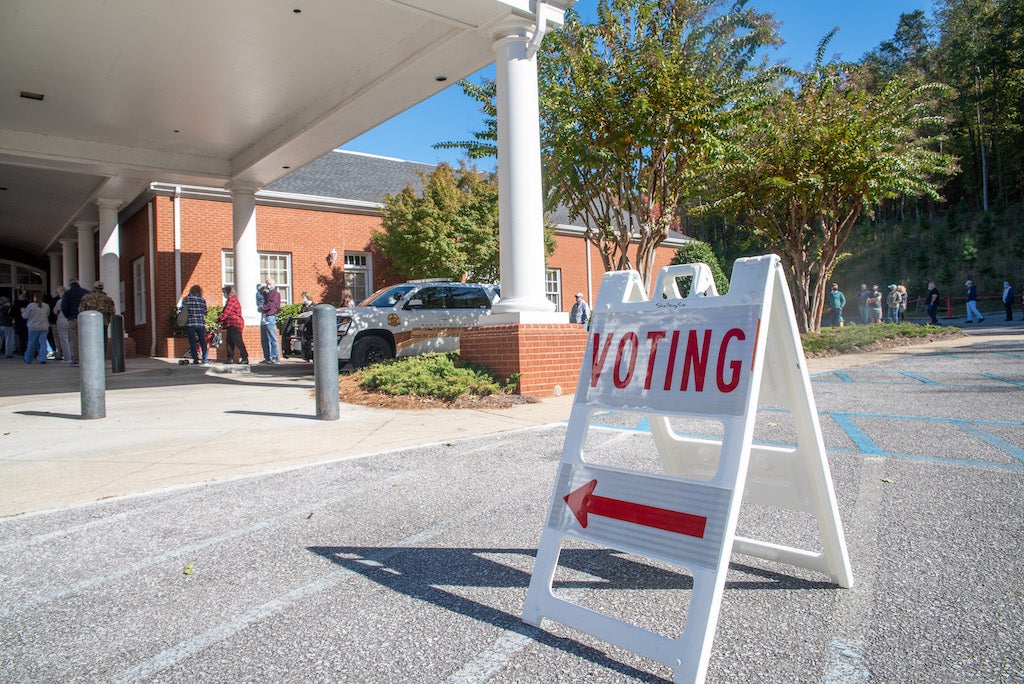Proposed statewide amendment could expedite passage of local laws
Published 4:50 pm Wednesday, February 21, 2024

- As proposed, statewide Amendment 1 would give the state Legislature the ability to circumvent time consuming processes with the hopes of expediting the passage of local laws. (File)
|
Getting your Trinity Audio player ready...
|
By MACKENZEE SIMMS | Staff Writer
In Senate Bill 3 of the Second Special Legislative Session, Senator Clyde Chambliss proposed a statewide constitutional amendment to appear on the ballot in the 2024 primary election on March 5. Amending Section 71.01 of the Alabama Constitution, this amendment would give the state Legislature the ability to circumvent time consuming processes with the hopes of expediting the passage of local laws.
According to State Rep. Corley Ellis, Section 71.01 establishes that the Senate must address the approval of budgets before they consider any other laws or bills.
“We’re statutorily required to do two things when we’re here in Montgomery in session and that’s pass both our budgets: the general fund budget and the education budget.” Ellis said. “And the state law for a long time, it said, you can’t do anything else until you do that.”
The difficulty is that the general fund budget and the education budget can take a significant portion of time to pass, time that could be spent addressing other topics. In order to alleviate this issue, the Senate presented an amendment that might serve as a solution.
On Nov. 8, 2016, Alabamians voted to pass constitutional Amendment 14, which allowed the House and Senate to consider local laws before the budget was passed by introducing a BIR, a budget isolation resolution. These resolutions give the Legislature the freedom to act on local bills before passing the two budgets, so long as an additional vote is approved by the House and Senate of at least a three-fifths vote.
“(The budget isolation resolution) is what we use currently today, to be able to pass legislation while the budgets are working through the process.” Ellis said. “We do that, because the budget takes a while to get going and there’s other good legislation that we need to move.”
While budget isolation resolutions give the Legislature the ability to address bills before the budgets are passed, a vote has to occur before addressing each individual law. This process creates a time constraint for the Legislature.
Rep. Ellis presented an example of how a morning in the House of Representatives may proceed.
“So, like today, we’re in session today, and we’ll pass 20 bills, so we have to have 20 separate budget isolation resolutions passed,” Ellis said. “You have to vote on it on every bill (and) so we’ll do that 20 times today.”
If Alabamians vote “yes” on statewide Amendment 1, the amendment would allow the Legislature to circumvent the budget isolation resolutions and consider local laws or local constitutional amendments without additional voting each time. If Alabamians vote “no,” the legislative process would continue unchanged, with the passage of budget isolation requirements necessary when considering local laws.
Ellis is hopeful that this amendment will streamline the legislative process and make it more efficient in terms of considering local laws.
“I’m very supportive of that (amendment),” Ellis said. “I think that that will help us free up and move local bills faster and more efficiently for the people back home.”
Alabama citizens will be able to vote on Amendment 1 in the 2024 primary election on March 5.









